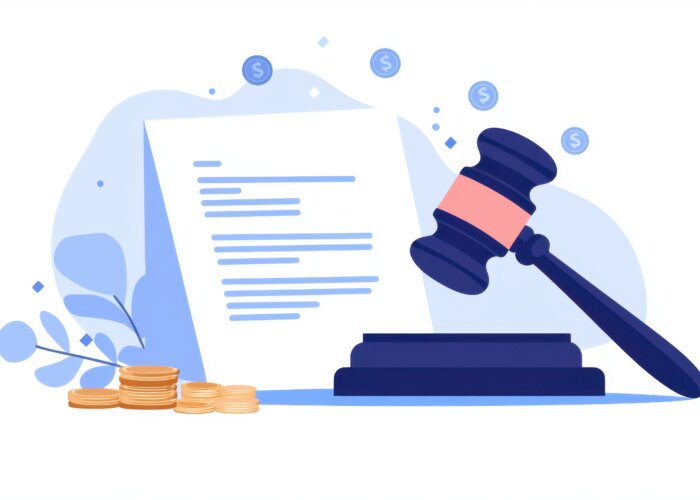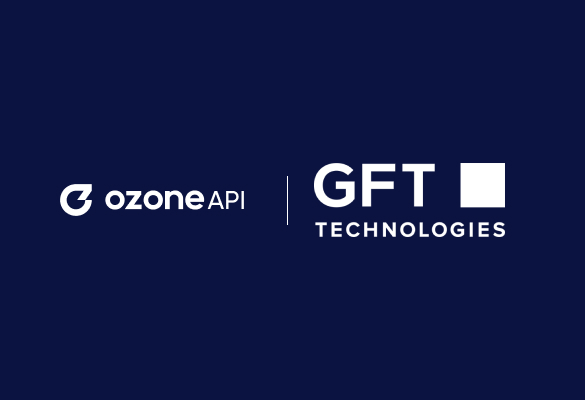The story of Section 1033, U.S.’s landmark open banking regulation, has more plot twists than a John le Carre spy novel and has left the entire financial services industry on edge. From the day the regulation landed in October 2024 to JP Morgan Chase’s bold fee announcement in July 2025, the rule has been on what experts describe as “quite the roller coaster.”
In a Global Voices episode hosted by Eyal Sivan, Dan Murphy, founder of Sunset Park Advisors and former CFPB open banking program manager, and Steven Boms, Executive Director of FDATA and President of Allon Advocacy, share their insights on what has been a year of uncertainty for the open banking ecosystem in the United States.
The Beginning: A Historic Moment Cut Short
On October 22 2024, the Consumer Financial Protection Bureau (CFPB) finalised Section 1033, officially known as the Personal Financial Data Rights Rule. After years of deliberation, consultations, and over 11,000 public responses to the draft issued in 2023, the U.S. was on track to officially roll out regulated open banking. Or at least many thought so.
The celebration was short-lived. The same day the rule was released, some of the largest banks in the U.S. filed a lawsuit against the CFPB, arguing that the regulation was unlawful. This move surprised many industry observers, particularly given that these banks had spent years helping with the rule making process.
“They’ve sued after spending years engaging on the rulemaking, providing comments that seemed to be supportive and give constructive input into what they wanted the contours of that rule to be,” notes Steven Boms.
The timing caught the industry off guard. As Dan Murphy explains: “The quickness with which the lawsuit was filed was a bit of a surprise to a number of folks in the industry including, I think, a number of banks who have been constructively engaging on this topic for a number of years.”
The Election Effect: A New Administration, New Priorities
And then came Trump. The November 2024 presidential election brought Donald Trump back to the White House, fundamentally changing the regulatory landscape. While many expected the new administration to take a different approach to financial regulation, open banking was widely viewed as something that would continue largely unchanged.
That expectation proved wrong. The new CFPB underwent what Murphy describes as “sweeping firings of CFPB officials in a couple of different waves.” More significantly for Section 1033, the CFPB shocked the industry by agreeing with the banks’ lawsuit, arguing that the CFPB lacked authority to issue such a rule in the first place.
“This has always been a bipartisan issue,” Murphy explains. “The rulemaking process actually started under the [first] Trump administration. So what was really surprising was when the CFPB actually agreed with BPI’s claim that the CFPB doesn’t even have authority in the first instance to issue any such rule.”
Enter the Financial Technology Association
With the CFPB effectively abandoning its defense of the rule, the Financial Technology Association (FTA) stepped in as an intervenor defendant to keep the regulation alive. Initially, the court was hesitant to allow this intervention, but when the CFPB signaled it would not defend the rule, the FTA was permitted to argue on behalf of the entire third-party ecosystem.
The FTA now represents not just fintech companies, but “a whole cross-section of other stakeholders including retailers, crypto companies and main street businesses” in defending the existing rule, according to Boms.
JP Morgan’s Bold Move
Skip to July 2025. Bloomberg publishes an article announcing that JP Morgan Chase would begin charging third-party providers fees for access to customer data, sparking debates industry wide.
“The market for JP Morgan Chase data is JP Morgan Chase data. There is no alternative or substitute for that market. And JP Morgan Chase controls 100% of that market,” Boms argues. The fees would reportedly exceed 100% of the annual revenue of most third parties accessing Chase data.
The announcement has reignited fundamental questions about data ownership and consumer rights. While the bank has stated support for customers’ right to share their financial data “in the right way,” their intention to charge for data access arguably contradicts this stance.
The divide centers on whether consumer data sharing should be treated as a fundamental right or a commercial service. Murphy captures this tension perfectly: “I’ve never been able to get myself to grok how a consumer right could be subject to a fee by a private entity when a consumer has a right over their own data. That doesn’t really seem to make any intuitive sense to me based on the meaning of the word rights.”
Boms uses an analogy to illustrate the contradiction: “It’s no different than if you moved into a town and the political officials say ‘that’s your land, you have the right to it.’ But then one day they decide to build a wall around the town and charge you a fee every time you want to come and go. That’s not a right if you’re being charged to use it.”
Current Status: The Rule Stands, But Change is Coming
As of today, Section 1033 remains the law of the land, with implementation deadlines set for July 2026. However, the CFPB has announced plans to issue an Advanced Notice of Proposed Rulemaking (ANPR) to potentially amend the existing regulation.
“The current state of play is that our rule stands, the Chopra rule stands,” Murphy explains. “The implementation deadlines are July of next year and the new CFPB is asking questions, very likely [to influence] its Advanced Notice of Proposed Rulemaking, to think about how it might eventually change that rule.”
The CFPB has signaled an aggressive timeline, indicating in their unified rulemaking agenda that they intend to propose amendments by December 2025.
What Happens Next?
The regulatory path forward remains uncertain. The CFPB must navigate a complex rulemaking process that typically takes several years, while banks and fintech companies operate under a cloud of uncertainty about compliance requirements.
Meanwhile, the industry watches nervously to see if other banks will follow JP Morgan’s lead. According to Boms, PNC’s CEO Bill Demchek has publicly stated they’re ‘cheering Chase on and watching very carefully,’ though no other major institutions have yet announced similar fee structures.
Despite the current uncertainty, Murphy sees an opportunity for constructive dialogue: “I think there’s a real opportunity here for everybody to sort of rewind the clocks now that the CFPB has decided they’re moving forward again and go back to a little bit more of a cooperative footing than they had before the BPI lawsuit came out. I think there are places like FDX where folks can do that constructively and I really hope they do that.”
The Stakes Couldn’t Be Higher
As artificial intelligence continues to flourish, disrupting financial services, the demand for data sharing capabilities has never been greater. The resolution of Section 1033’s current uncertainty will likely determine not just how Americans access their financial data, but how the entire fintech ecosystem evolves.
For now, banks are advised to continue preparing for compliance with the July 2026 implementation deadlines, while fintech companies must navigate an existential challenge to their business models. The rule’s ultimate fate may depend on how quickly the CFPB can navigate the complex regulatory process and whether the courts ultimately validate the agency’s authority to regulate in this space.
What began as America’s definitive answer to open banking has become a case study in regulatory uncertainty. The only certainty is that the U.S. financial services industry will be watching every development closely, as the stakes for innovation, competition, and consumer rights have never been higher.







